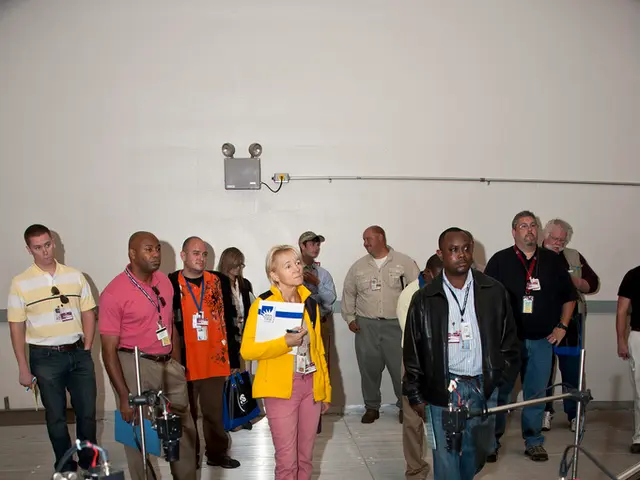Following a tragic helicopter crash claiming the life of his son, a father asserts outdated technology deprived family members of acquiring vital answers.
In the unfortunate incident of a Marine helicopter crashing into a snowy mountain peak in Southern California, taking the lives of all five service members on board, the absence of a crucial device was a significant hindrance. This device, known as a crash survivable flight data recorder, or simply a "black box," would have provided invaluable information during the investigation.
The helicopter, a CH-53E Super Stallion, was flying during a routine training mission amidst a winter storm, resulting in heavy rain and snow in the San Diego area. An investigation report released this week highlighted pilot error as the main cause of the crash, with icing conditions and low cloud cover as contributing factors. However, due to the lack of the black box, investigators had to make assumptions, presenting "multiple realistic theories" of what might have happened.
In the aftermath of this tragedy, families of the fallen demand answers beyond mere speculations. Steve Langen, whose son Alec was among the casualties, criticizes the current state of affairs, stating, "We're flying with equipment that's from the mid-'80s." Langen, himself a Marine aviator, advocates for the integration of this technology across all Super Stallions, arguing that it would help aviators better understand weather, terrain, and decision-making factors.
However, the U.S. military's regulations for crash survivable flight data recorders on military helicopters are less stringent than those for commercial aircraft. The cost and complexity associated with integrating modern crash survivable systems, the prioritization of certain aircraft, and the technical challenges posed by old models all contribute to the inconsistency in implementation.
Despite these challenges, recent incidents, such as the February 2024 Marine Corps CH-53 Super Stallion crash, emphasize the crucial need for crash survivable flight data recorders. As the development of advanced safety features like the Honeywell Connected Recorder (HCR-25) continues, the military aviation standards might evolve to offer more efficient and cost-effective solutions for data management and safety analysis.
References:[1] National Transportation Safety Board[2] Honeywell Aerospace[3] Marine Corps Times, "Marine helicopter carrying 5 quickly goes down in Southern California," Feb 7, 2024.
Technology in military aviation could potentially improve safety, as demonstrated by the Honeywell Connected Recorder (HCR-25). General-news reports highlight the lack of such technology in the CH-53E Super Stallion that crashed in Southern California, emphasizing the need for crime-and-justice investigations to be based on solid evidence rather than assumptions.








